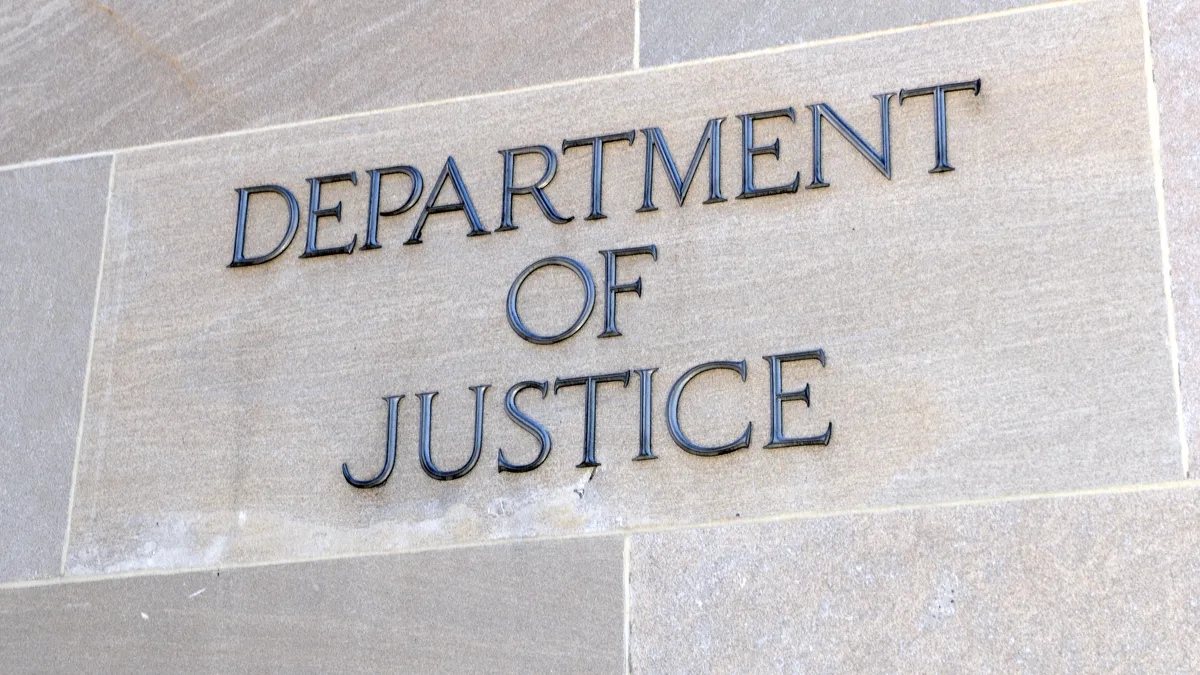Dive Brief:
- The Federal Trade Commission and the Justice Department’s Antitrust Division filed a statement of interest with the District of New Jersey in the case of Cornish-Adebiyi v. Caesars Entertainment, the FTC announced last week.
- In their statement, the agencies explain that hotels cannot collude on room pricing or use an algorithm to “engage in practices that would be illegal if done by a real person.”
- Price-setting algorithms have been in the spotlight lately, as more hotels turn to tech to guide pricing decisions. Recent suits, however, allege that some of these platforms are engaging in illegal price-fixing.
Dive Insight:
Under the Sherman Act, it’s unlawful for competitors to “join together their independent decision-making power to raise, depress, fix, peg or stabilize prices,” the FTC and DOJ wrote in their statement.
In Cornish-Adebiyi v. Caesars Entertainment, plaintiffs allege that competing casino hotels are violating the Sherman Act by using the Rainmaker platform to algorithmically set prices “while knowing and precisely because all other Casino-Hotel Defendants had agreed to do the same.”
Defendant hotels in the case previously asked that it be dismissed, as plaintiffs had not identified direct communications between the hotels, and the recommendations made by Rainmaker were not binding. The FTC and DOJ, however, wrote that neither of these defenses are supportable, as the law covers both tacit and express agreements. The agencies added that fixing the “starting price” is unlawful, even if the ultimate prices differ.
Defendants named in the suit include Caesars Atlantic City Hotel & Casino, Harrah’s Resort Atlantic City Hotel & Casino, Tropicana Casino and Resort Atlantic City, MGM Resorts International and Hard Rock Hotel & Casino Atlantic City.
According to the FTC’s release, hotel pricing algorithms “make it harder for travelers to comparison-shop for the best rate.”
More businesses than ever are using algorithms to determine prices — and not just in hospitality, according to Brookings.
While economists largely believe these algorithms can “increase efficiency,” a Brookings report from July 2022 says, consumers are increasingly concerned that the technology reduces competition and increases prices.
Within the past year, the FTC and DOJ have also filed statements of interest concerning algorithmic price-fixing in the residential housing market and the real estate and food industries.
In February, several major hotel operators and commercial real estate information giant CoStar were hit with a similar lawsuit alleging price-fixing. Plaintiffs in a class action complaint alleged that CoStar’s Smith Travel Research, or STR, facilitated an exchange of “competitively-sensitive information about their prices, supply, and future plans.”
Defendants named in the complaint include Marriott International and Hilton, InterContinental Hotels Corporation, Loews Hotels Holding Corporation and Accor Management US Inc.











